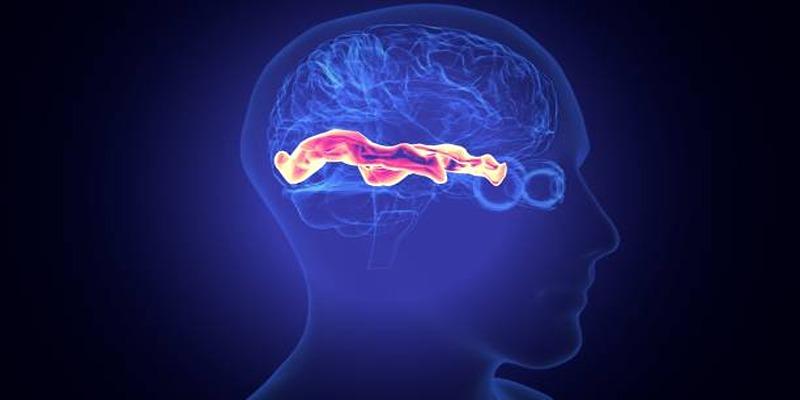Emotional clutter can weigh heavily on your mind, impacting your focus, motivation, and overall well-being. It often manifests as persistent worries, unresolved feelings, or mental overload. Recognizing these signs is the first step toward regaining mental clarity. This guide will explore common indicators of emotional clutter and provide practical tips to clear your mind effectively.

Emotional clutter can be described as the accumulation of immature feelings, unresolved conflicts, and persistent internal pressure and stress that impede rational thinking and disrupt internal balance. Unlike physiological clutter, emotional clutter is not visible to the eye, but it can have lasting effects.
Individuals who find themselves in emotional clutter may experience distraction, restlessness, or emotional fatigue without realizing the cause. Consciousness and positive care are vital in being mentally lucid and emotionally sound.
Knowledge of the sources of emotional clutter would assist one in avoiding the growth of it and managing it. Common causes include:
Clearing emotional baggage is not easy to do but it needs proactive effort, self-awareness, and discipline. The following strategies can be incorporated to resume the mental clarity and inner peace:
Mindfulness teaches us to be mindful and non-judging of the moment. Meditation, breathing exercises or mindful walking routines can be used regularly to cool down the noise in the mind, raise the concentration, and make oneself more resilient to emotional challenges.
When writing on the personal matters that preoccupy us and the insights derived through reflection and meditation, we connect emotionally with our writing and boost our cognitive efficiency in apprehensive options.
It is necessary to secure your mindset by rejecting those relationships or opportunities that depleted energy. The boundaries contribute to eliminating these unneeded emotional accumulations and mental freedom.
The environment usually is a reflection of the mind. A systematized living or working environment can create the feeling of some order in your environment, which leads to emotional and cognitive sharpness.
Fitness will clear anxieties, release endorphins, and enhance stress-free emotions. Walking, yoga, swimming, and so on are particular practices that are proven to help calm down and have a better mood wholesomely.
Further mental distress can be avoided by limiting displays on the screens, their notifications and exposure to emotionally evoking material. Calm breaks or mini detoxes can be planned in digital format to enhance concentration and emotional conditions.
Being nice to yourself decreases the strain that people bring on themselves. Accepting flaws and forgetting judgment of oneself forms a more calm and focused state of mind.
To stay free and have a decluttered mind, there have to be constant habits and mindfulness:
Take a few minutes of time to check the thoughts and feelings every day. Clusters of emerging stressors are avoided by detecting them at an earlier stage and avoiding their build-up into mental garbage.
The nature of routine daily procedure brings about regularity and lessens the overall cognitive charge, allowing emotional clutter the beige threatened with the chance to form.
Bringing a chance to examine how you feel at regular intervals is important to make sure that you are not left to build a backlog of unresolved feelings. Mental decluttering is based on awareness.
Art, music or writing can serve to constructively release emotions thus encouraging emotional releasing and clearing.
Commitment to positive experiences or achievements helps to switch attention away as opposed to mental noise to constructive thoughts which enhances clarity and emotional.

The benefits of clearing emotional clutter can be full-body, including in the mental, emotional and even physical health:
With an uninvolved mind, creativity, clearness and deliberate living become available. It opens up room to expand, develop meaningful relationships and enhanced satisfaction.
Emotional clutter is an unseen but strong force of effect to mental and emotional wellness. The initial step in being able to control your mind is recognizing the signs, the inability to focus, constant tiredness, dwelling and emotional wandering, which are a few symptoms that indicate you are not in control of your thoughts. By implementing strategies such as mindfulness, journaling, physical activity, and fostering supportive connections, you can successfully declutter your mind and achieve lasting emotional clarity.
 TOP
TOP
Curious about when to claim your Social Security benefit? Learn how age, health, income, and other personal factors influence this important decision and shape your retirement future
 TOP
TOP
The joys of spontaneous travel with tips for unplanned adventures, packing light, and connecting with locals for unforgettable experiences.
 TOP
TOP
Discover thrilling day trips near Cape Town, featuring stunning landscapes, cultural experiences, and adventure for every traveler.
 TOP
TOP
Discover the truths and misconceptions about medical research studies in this insightful article.
 TOP
TOP
The benefits of outdoor activities for improving physical and mental well-being.
 TOP
TOP
Discover the truth about cold weather and its link to sickness in this science-based article.
 TOP
TOP
Identify emotional clutter and discover practical ways to declutter your mind for clarity and peace.
 TOP
TOP
Debunking 7 common myths about Alzheimer’s and dementia for clearer understanding.
 TOP
TOP
Untreated GERD can cause esophagus damage, Barrett’s esophagus, dental erosion, and cancer. Learn symptoms, risks, and why early treatment matters for health.
 TOP
TOP
Aphantasia affects mental imagery, memory, and creativity. Explore its causes, cognitive impacts, coping strategies, and real-life adaptations for navigating life without a mind's eye.
 TOP
TOP
Mental health shapes our well-being, productivity, and equality. Learn why it matters for everyone and discover ways to build stronger support systems.
 TOP
TOP
Learn to identify whether your eyelid bump is a stye or a chalazion, understand the causes and symptoms, and explore effective treatment options for better eye health and comfort.